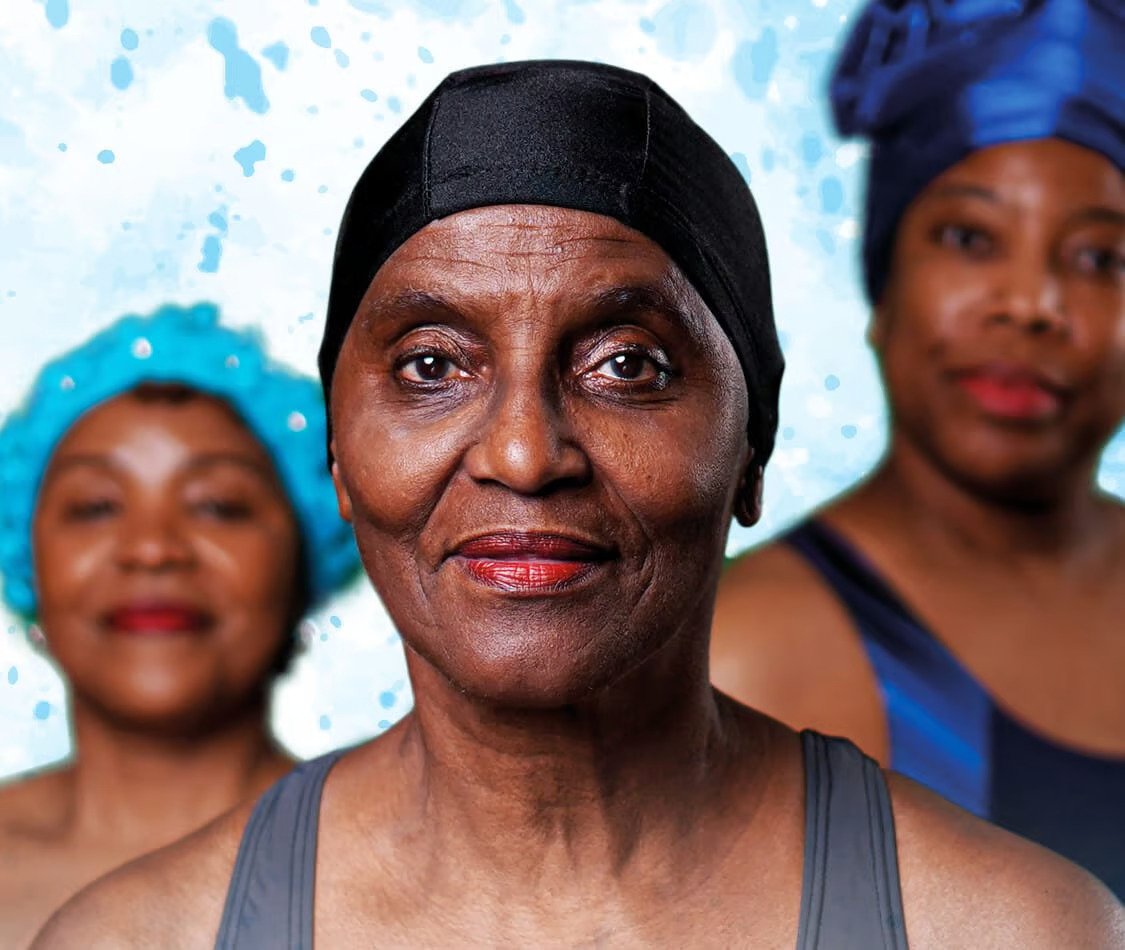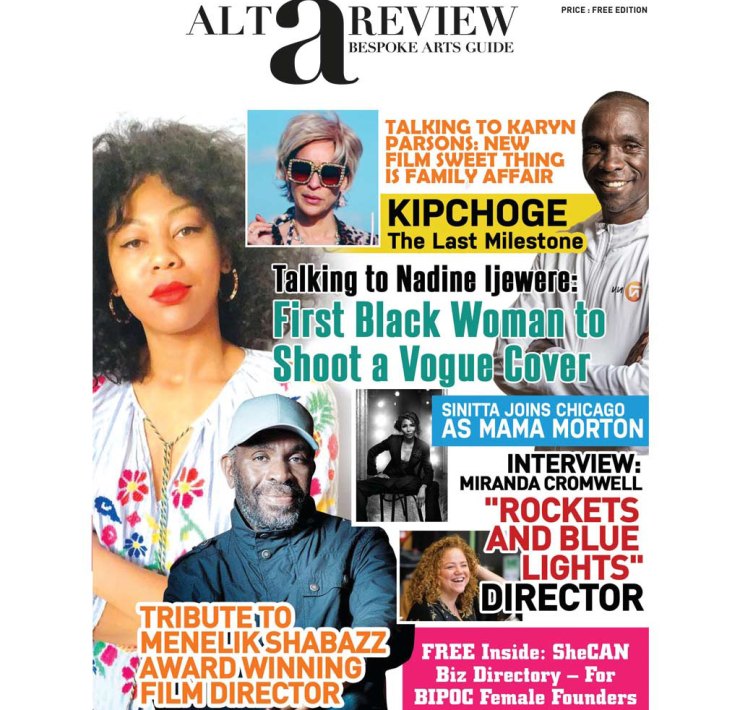Domingo is a distinguished actress celebrated for her versatile performances on both stage and screen. With an illustrious career spanning several decades, she has garnered acclaim for her dynamic portrayals in a variety of theatrical productions and television dramas.
On stage, Anni has done numerous classic and contemporary plays, working with renowned theatre companies across the UK. She has delivered powerful performances in Shakespearean productions such as “Othello” and “The Tempest,” and has been a vital presence in modern plays like “The Amen Corner” by James Baldwin. Her theatre credits reflect a deep commitment to bringing complex characters to life with authenticity and emotional depth.

In addition to her impressive theatre work, Anni Domingo has made significant contributions to television. She has appeared in popular TV series including “EastEnders,” “Doctors,” and “Holby City,” where her compelling screen presence and nuanced acting have left a lasting impact. Her roles on television have demonstrated her versatility and ability to engage audiences across different genres.

Beyond acting, Anni is also a respected director and writer, continually contributing to the arts with her creative vision and storytelling prowess. Her dedication to her craft and her exceptional talent make her a standout figure in the world of theatre and television. Domingo’s debut novel, Breaking the Maafa Chain, was shortlisted in the 2014 Lucy Cavendish College Fiction Prize. Now she is on stage at the Belgrade Theatre in a new production called Swim, Aunty, Swim! a profound, poetic story of friendship, loss, sisterhood, motherhood, ageing, starting again, and the sublime power of water.

DAT REN WE BIT BITA-LIF SOTE I BITA, NA-IN BIT SHUGA KEN SOTE I SWIT – Krio Proverb Translation: The same rain that beats bitter-leaf until its bitter, beats sugar cane until it’s sweet.Fatu is in search of a new life and a fresh start. Leaving London behind, she makes her way to Coventry. There she forms a friendship with fellow members of her new church, Aunty Blessing and Aunty Ama – a fiery, entertaining and sharp-witted duo of West African women in their prime, navigating changes and transitions in their own lives.
How do the themes in Swim Aunty Swin resonate with the now?
The themes are so current. It is about grief, loss, friendship, and growth.
Tell us about the motivation for your character?
The motivation for my character, Aunty Fatu, is finding out how to deal with her grief. At her age Fatu has had to deal with loss and grief. So have I, therefore I have to help Fatu find a way to climb out of her despair and start to look to the future.
What does playing this role mean to you?
Playing this role means a lot. Fatu is from Sierra Leone and so am I. It feels great to have the opportunity to play a character from my country. The other two ‘Aunties’ are also from West Africa – Ghana and Nigeria. This is rare and it is fantastic to see three older West African Women being portrayed on the stage.
As a seasoned practitioner what are some of the things you do to prepare for any role?
Well, I read the play as a start, but joking aside, I start researching the subject and themes even before rehearsals begin. I want to start getting into the character’s head.
What do you like most about this job?
I love the fact that the play is written by a Sierra Leonean and that most of the cast and creatives are black women at the top of their professions. There is such understanding and empathy in the room.
With more than a few decades under you belt who are the role models you saw coming up that you champion?
Role models I saw coming up were people like Isabell Lucas, Mona Hammond.
Stage or screen which do you like the most?
That is hard as I love both but in different ways. Theatre gives you immediate reaction and feedback. You have the chance to fine tune your performance. Screen gives you the chance to do several takes but as an actor you have no control over the final image that goes out on film.

How do you manage to write, act, produce and direct all in good measure what is your message to those who say I can’t?
I say that you must learn to be organised. Realise that you cannot do all of it at the same time. My diary is my friend. Portion out your hours and days and concentrate on just what you are dealing with at any one time, then move on to the next thing. And don’t worry if the house is a bit untidy or the dishwasher is not emptied.
Talking of being an author lets talk on “Breaking the Maafa Chain” your latest book we have not had a chance to talk on this but why this story and can we see the play or movie perhaps?
I needed to write this S#story about Sarah Forbes Bonetta because I wanted people to understand that not all Black people came to England on the HMS Windrush. There were black people in England a long time ago. We have our stories, and it is only now that some of these stories are being told. This is one of them. I am now writing the story of her daughter as part of my PhD at King’s College. After that is finished, I will certainly be working on a play about them.
What do you do when you are not working?
When I’m not working, I read, visit the theatre, museums, and travel. My main hobby though is sewing. I make a lot of my own clothes.
If you could play any role what would that be?
I would love to do a play about Mary Prince. She was an amazing woman.
We are having big conversations around diversity what are the positive changes you have seen in theatre for example in the last 5 years?
One of the major positive changes on diversity is the number of black shows that audiences have the chance to see not just in the Fringe theatres but also in the West End. There was a time when you would be lucky to see a show with any black actors or creatives for months on end. Right now, I can count over five shows that are predominantly made up of black actors and creatives, Representation is important, and that goes for wider diversity in all ways.
Why should we come down and see Swim Aunty Swim?
You must come down to see Swim Aunty Swim, because it will take you on an emotional journey. You will cry and you will laugh and leave the theatre full of joy.
Where do you call home?
I guess England, and more precisely Cambridgeshire as I have lived there for almost forty years. But there is a part of me that will always call Sierra Leone home, for that is where I grew up. Swim, Aunty, Swim! runs until 1st June 2024 Book tickets here.
You might also like: Theatre Interview: Quick Chat with Nia Akilah Robinson












